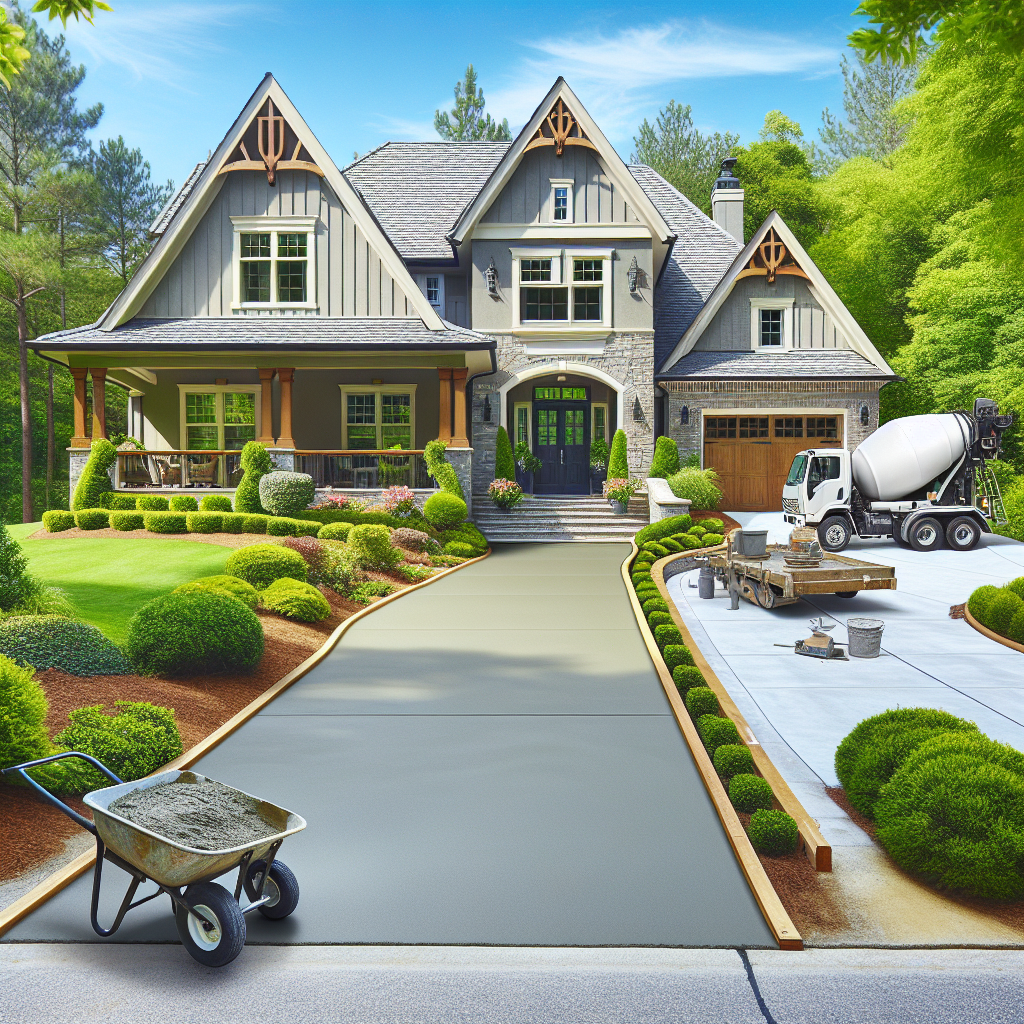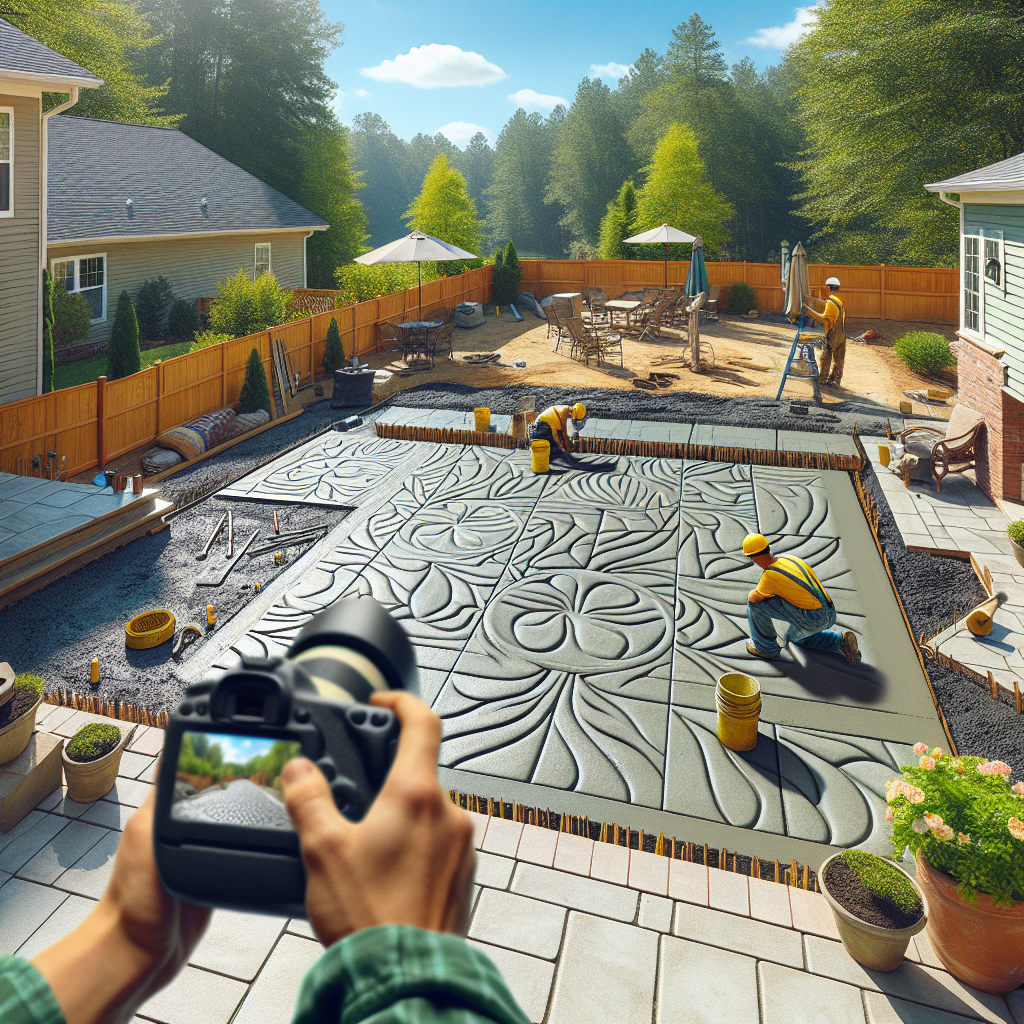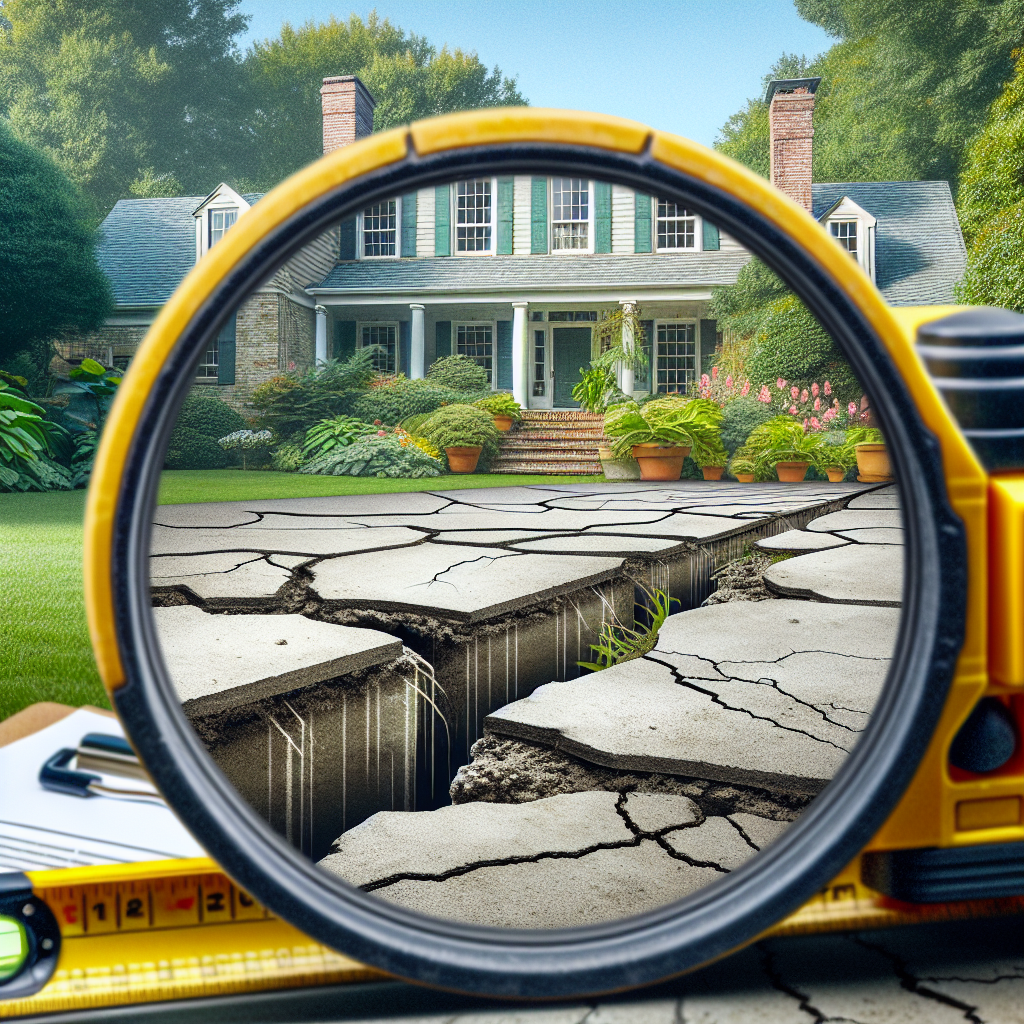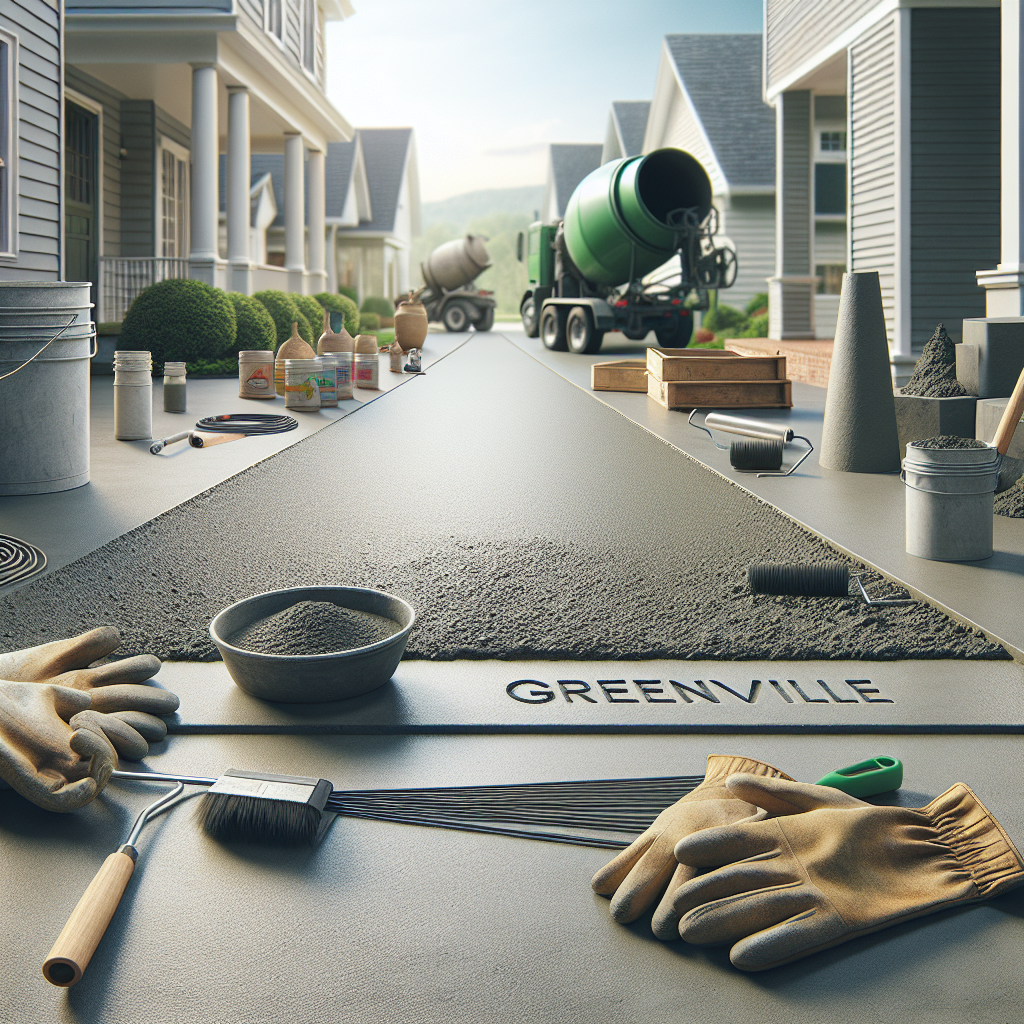Understanding Concrete Slab Installation in Greenville, SC: What You Need to Know
Welcome to Greenville, where the charm of southern living meets modern construction! Whether you’re a homeowner looking to enhance your property or a contractor involved in larger projects, understanding the ins and outs of concrete slab installation in our region is crucial. Here in Greenville, we have specific local climate conditions and soil types that can significantly influence building practices. Additionally, staying compliant with local building codes and regulations is not just about following the law—it’s about ensuring safety and maximizing the longevity of your investment.
Step-by-Step Guide to Professional Concrete Slab Installation in Greenville
Ready to dive into the world of concrete? A successful installation begins long before the concrete mix is poured. From preparing the site by clearing and grading, to creating the perfect frame, every step needs careful attention. Then, learn the art of pouring and finishing the concrete—a process where timing and technique are everything. Lastly, we’ll cover the curing process, a crucial phase that ensures your slab is as durable and strong as it can be.
Cost Factors and Budgeting Tips for Concrete Slab Installation in Greenville, SC
Thinking about costs? You’re not alone. The price of installing a concrete slab can vary widely, influenced by factors such as size, thickness, and additional reinforcements. But don’t worry! We’ll guide you through estimating the cost and provide practical tips on how to save money without cutting corners on quality. Plus, we’ll share some of the best local resources and suppliers in Greenville, SC, to help you get top-notch materials without breaking the bank.
So, whether you’re laying a foundation for a new home, setting up a backyard patio, or adding a garage, this guide will help you navigate the process with confidence and ease. Let’s get started on making your concrete plans a reality!
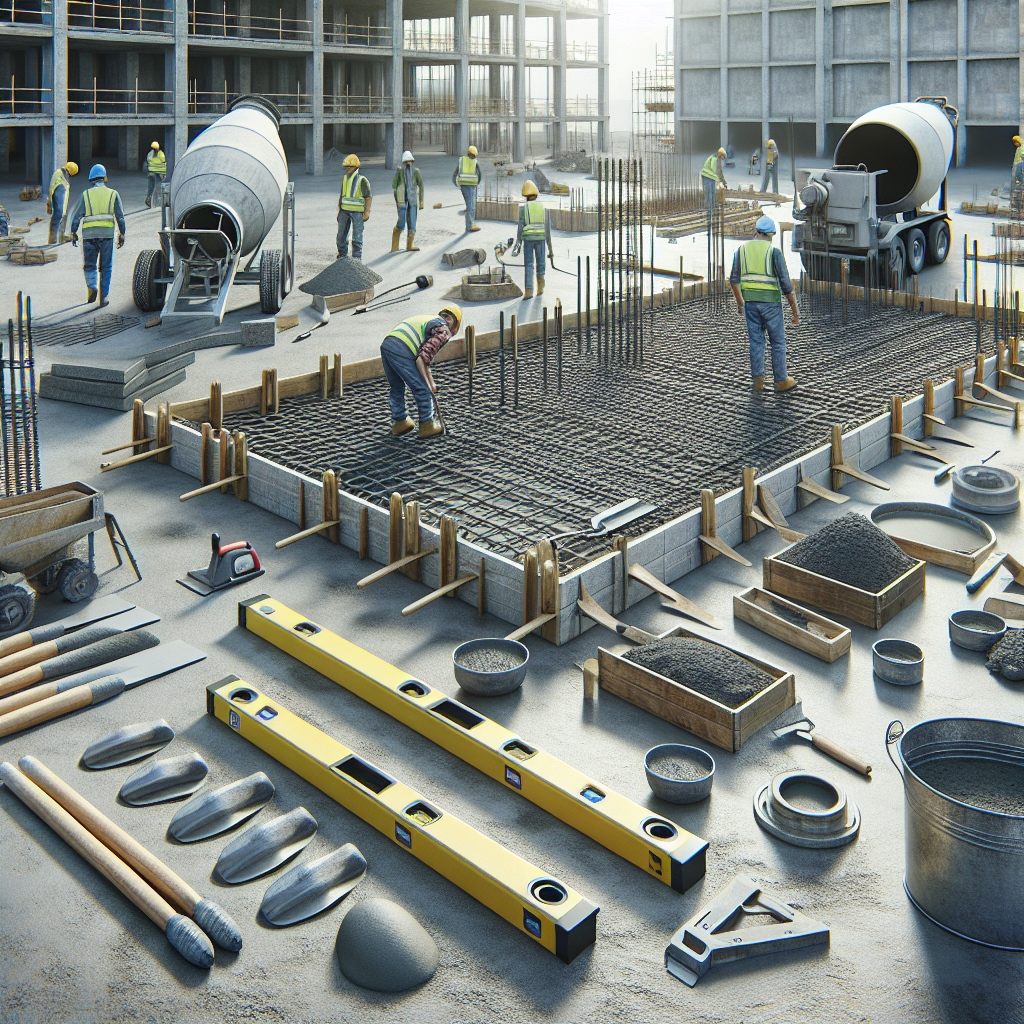
If you need help with your concrete project, reach out to Greenville Concrete Company for a free quote!
Understanding Concrete Slab Installation in Greenville, SC: What You Need to Know
Welcome to Greenville, SC! If you’re planning a construction project that involves laying down a concrete slab, you’re in the right place. Whether you’re setting up a new driveway, patio, or foundation for your home, understanding the local specifics of Greenville can make all the difference in ensuring a successful, durable outcome for your concrete slab. Let’s dive into what you need to know about the local climate, soil conditions, and regulatory framework here in our vibrant community.
Essential Considerations for Local Climate and Soil
The climate and soil in Greenville play a pivotal role in the planning and execution of any concrete slab installation. Here’s what you need to keep in mind:
- Climate: Greenville experiences a humid subtropical climate. This means hot, humid summers and mild winters. Concrete work often prefers certain temperature ranges for optimal curing. In the hot summer months, concrete can dry too quickly, which might lead to cracking. On the flip side, winter installations require special considerations to prevent freezing before the concrete has set properly. Timing your concrete slab installation can be crucial to avoid these extremes.
- Soil Type: The soil in Greenville can vary but typically includes a mixture of clay and loam. This composition can expand and contract with moisture changes, which can potentially lead to shifting and cracking in concrete slabs. To mitigate these issues, proper site preparation and choosing the right subgrade materials are essential.
It’s advisable to have a professional assess the specific soil characteristics of your site to recommend the best practices for preparation and maintenance.
Compliance with Greenville Building Codes and Regulations
Before pouring concrete, you’ll need to familiarize yourself with the local building codes and regulations in Greenville. Compliance is non-negotiable, and here’s how you can ensure you adhere to these standards:
- Building Permits: Depending on the size and type of your project, you may need a building permit from the Greenville County or city building department. It’s best to check in advance to avoid any legal hassles and ensure that all your work is above board.
- Code Requirements: Greenville’s building codes will dictate everything from the minimum slab thickness to the types of reinforcement needed. These codes are designed to ensure safety, durability, and proper integration with existing structures and utilities.
- Inspections: Regular inspections may be part of your installation process, depending on the project’s scope. These are typically conducted by city inspectors and ensure that your project adheres to all local regulations and codes.
Engaging with a local professional who is well-versed in Greenville’s regulations can streamline the process, ensuring compliance and minimizing the risk of costly mistakes or redo’s.
In conclusion, understanding the nuances of concrete slab installation in Greenville, SC, involves a good grasp of local climate conditions, soil characteristics, and stringent compliance with building codes. By taking these factors into account, you can ensure that your concrete installation is set on a solid foundation, both structurally and legally.
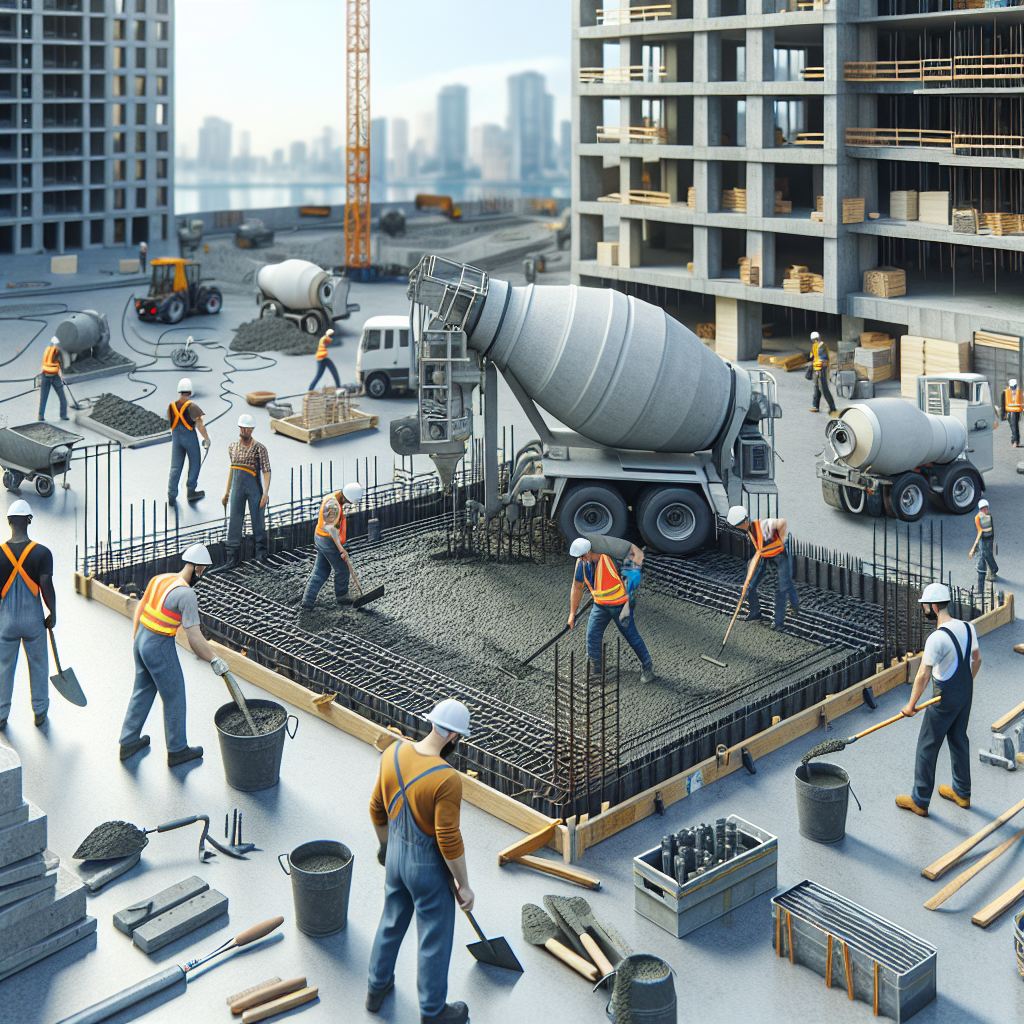
Step-by-Step Guide to Professional Concrete Slab Installation in Greenville
Hey there, Greenville homeowners and business owners alike! If you’re gearing up to lay down some solid foundations, whether it’s for your new garage, a backyard patio, or maybe expanding your business space, understanding the proper steps to install a concrete slab can seem daunting. But fear not! We’re here to guide you through the process with some local expertise and a sprinkle of neighborly advice. Let’s dive into the world of concrete slab installation here in our very own Greenville, SC.
Preparing the Site: Clearing, Grading, and Framing
First things first, let’s talk about getting your site ready. This is a crucial step that sets the tone for the entire project!
- Clearing the Site: Begin by clearing away any debris, old structures, or vegetation. Remember, a clean and clear site prevents future issues with your slab. It’s kind of like setting up a blank canvas for your masterpiece.
- Grading the Site: Next up is grading. This step ensures that the ground is level and ready to support your slab. Proper grading also prevents water from pooling under your concrete, which is crucial in Greenville’s sometimes wet climate.
- Framing the Slab: Once the ground is level, it’s time to frame. Think of this as drawing the outlines on your canvas. Wooden forms will help hold the concrete in place as it dries and ensure that your slab edges are crisp and clean.
Each of these steps requires careful attention to detail. It’s totally fine if you feel like it’s a bit over your DIY skills—local professionals are always around to lend a hand!
Pouring and Finishing the Concrete: Techniques and Timing
Now, let’s get to the exciting part—pouring the concrete! This is where you really start to see your project come to life.
- Mixing the Concrete: Whether you mix your own or get ready-mix delivered, the key is to achieve a consistent texture. A pro tip? Make sure the concrete is neither too runny nor too thick.
- Pouring the Concrete: Pour the concrete into the forms you’ve set up. Start from one corner and work your way across to avoid uneven distribution and potential weak spots.
- Leveling: Once poured, use a screed board to level out the surface. This helps in removing excess concrete and filling in low spots, essential for a flat and even slab.
- Finishing Touches: After leveling, the concrete will need to be smoothed out. Depending on your desired finish, you might use a float or a trowel to achieve a sleek look or a broom to create a non-slip surface.
Timing is crucial during this phase. Concrete starts to set fairly quickly, especially on those warm Greenville summer days. Working efficiently and having a few extra hands can make a difference.
Curing Process: Best Practices for Durability and Strength
Last but certainly not least is the curing process. This step is all about patience and care. Proper curing significantly impacts the durability and strength of your concrete slab.
- Keeping the Concrete Moist: One common method is to keep the concrete moist by covering it with wet burlap or plastic sheeting. This prevents the water in the concrete from evaporating too quickly.
- Timing the Cure: Generally, a standard concrete slab should cure for at least a week. During this time, keeping foot traffic and equipment off the concrete is crucial to prevent cracks and structural damage.
Think of curing like letting a fine wine age—it’s all about giving it the time it needs to reach perfect strength and resilience.
And there you have it—your step-by-step guide to laying down a concrete slab like a pro right here in Greenville, SC. Whether you decide to tackle this project on your own or hire local experts, you’re now equipped with the knowledge to get it done right. Just remember, taking your time with each step is key to a successful and durable concrete slab. Happy building!
Cost Factors and Budgeting Tips for Concrete Slab Installation in Greenville, SC
Planning a concrete slab installation in the heart of Greenville, SC? Understanding the cost factors and knowing how to budget effectively can make all the difference in ensuring your project is not only successful but also cost-efficient. Let’s dive into the financial side of laying down that perfect concrete foundation.
Estimating the Cost: Factors That Affect the Overall Price
Several factors come into play when estimating the cost of a concrete slab. Here’s what to keep in mind:
- Size and Thickness: The larger and thicker your slab, the more materials and labor will be required, which increases the cost.
- Preparation Needs: Site preparation can vary widely. Difficult terrain or the presence of large debris can increase initial costs.
- Type of Concrete: The grade and type of concrete used (standard, reinforced, high-density) will impact the price.
- Finishing Options: Basic finishing will be less expensive than decorative options such as stamping or adding colors.
- Accessibility: If your site is hard to reach or requires special equipment for concrete delivery, costs can go up.
Understanding these factors will give you a clearer picture of the budget required for your project. Don’t forget to add a contingency of around 10-15% for unexpected expenses!
How to Save Money Without Compromising Quality
Saving money doesn’t mean you have to cut corners on quality. Here are some savvy tips to keep costs down while maintaining the integrity of your concrete slab:
- Compare Quotes: Don’t settle for the first contractor you talk to. Get multiple bids to ensure you are getting competitive and fair pricing.
- Opt for Simplicity: Choosing a straightforward design can significantly reduce costs. Intricate patterns and finishes can wait if budget is a concern.
- Schedule Wisely: If possible, schedule your project during non-peak seasons. Contractors might offer better rates during slower periods.
- Do Some Prep Work: If you’re able to, handling some of the preparation work yourself, such as clearing the site or setting up the frames, can reduce labor costs.
Each of these steps can help you save money without sacrificing the quality of your concrete slab. Remember, effective communication with your contractor about your budget can also help in managing costs effectively.
Local Greenville, SC Resources and Suppliers for Budget-Friendly Materials
Greenville, SC, has a robust network of suppliers and resources that can help you get quality materials at a better price. Here’s how you can utilize local advantages:
- Local Suppliers: Purchase your concrete and other materials from local suppliers to save on shipping costs and support local businesses.
- Bulk Buying: If your project is large, or if you anticipate future projects, buying in bulk can lead to significant savings.
- Recycled Materials: Consider using recycled concrete for areas that might not need new materials, such as sub-bases for your slab.
Making use of local resources not only helps in reducing the environmental impact but also can be a boon to your budget. Don’t hesitate to ask your contractor for recommendations on where to get the best deals in Greenville.
By keeping these cost factors, budgeting tips, and local resources in mind, you’re well on your way to a successful and economically efficient concrete slab installation in Greenville, SC. Remember, a little planning goes a long way in saving money and ensuring the longevity and durability of your concrete installation. Happy building!
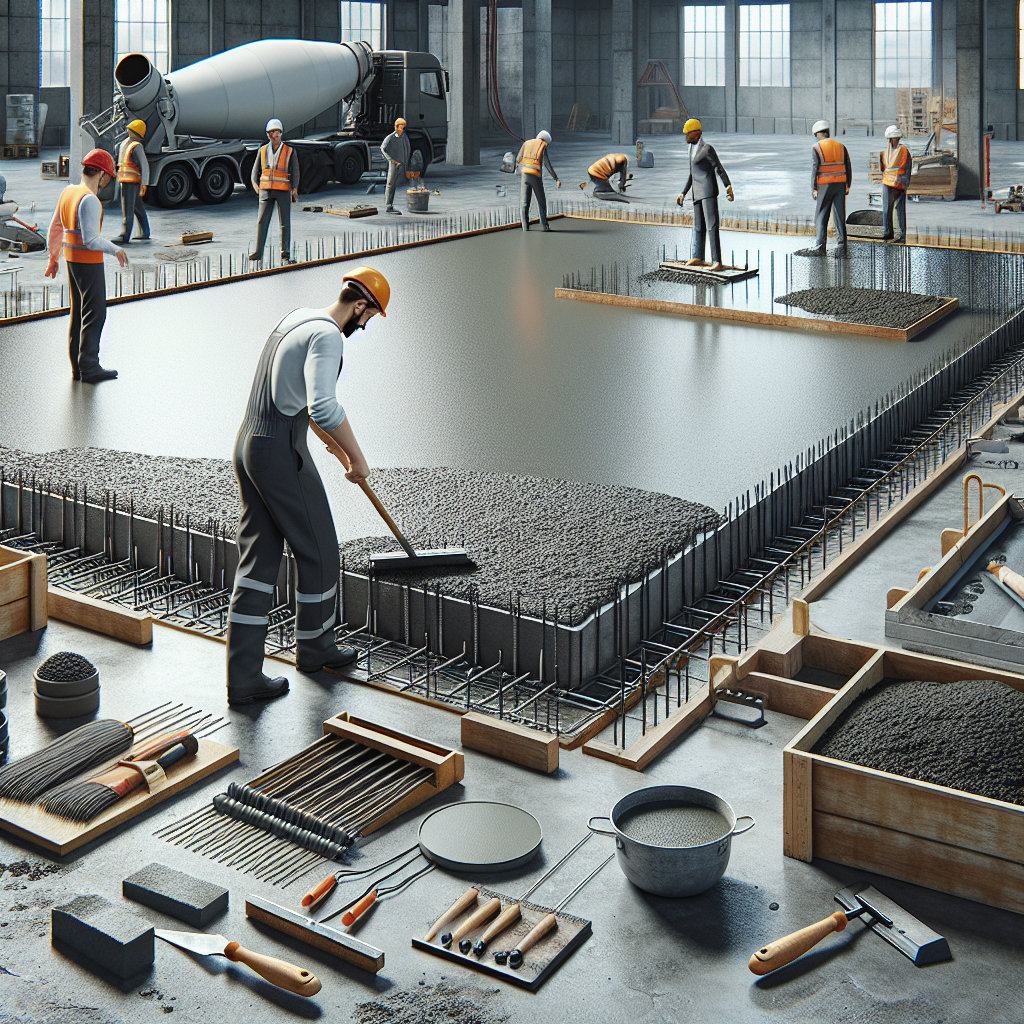
Frequently Asked Questions
What are the key considerations for concrete slab installation in Greenville’s climate?
In Greenville, SC, the climate can vary, affecting how concrete behaves. With hot summers and mild winters, it’s important to choose the right time for pouring concrete to avoid rapid drying and ensure proper curing. Additionally, considering the local humidity levels can help in selecting the right additives and curing methods to enhance the durability of your concrete slab.
How do local soil conditions impact concrete slab installation?
Greenville’s soil types can range from clay to loam, which affects drainage and stability. Professionals often recommend soil testing before installation to determine the need for additional site prep work like grading or the addition of a sub-base layer to prevent future shifting or cracking of the slab.
What building codes in Greenville must I comply with for a concrete slab installation?
Greenville follows specific building codes that ensure safety and quality in construction. These regulations cover everything from minimum thickness and reinforcement of the slab to the quality of concrete used. It’s crucial to check with the Greenville County building codes or consult professionals to ensure compliance.
What are the steps involved in preparing a site for concrete slab installation?
Site preparation involves clearing the area of any vegetation or debris, leveling the ground (grading), and constructing strong frames to hold the concrete in place (formwork). Proper site preparation ensures that the slab will be level, stable, and well-supported.
Can you explain the concrete pouring and finishing techniques?
Concrete pouring should be done quickly to avoid partial setting during the pour. Finishing involves leveling the surface (screeding), smoothing it (floating), and texturing it to ensure it is non-slippery if exposed. Timing and technique are crucial to prevent imperfections and ensure a uniform finish.
What are best practices for curing concrete in Greenville?
Proper curing is essential for achieving maximum strength and durability. Methods like keeping the concrete moist by covering it with plastic sheeting or applying a curing compound are effective. The curing process typically takes about 28 days, during which the slab should be protected from extreme weather conditions.
How is the cost of concrete slab installation estimated?
The cost depends on factors such as the size of the slab, thickness, type of concrete, and any special reinforcements or additives. Prices can also vary based on the complexity of the job and accessibility of the site.
What are some tips for saving money on concrete slab installation without compromising quality?
To save costs, plan your installation during off-peak seasons, source materials locally, and ensure accurate calculations to avoid excess purchasing. Opting for standard finishes rather than customized options can also reduce costs.
Where can I find budget-friendly materials for concrete slab installation in Greenville?
Local suppliers often offer competitive prices and good quality materials. It’s beneficial to seek recommendations from professionals who may have established relationships with suppliers and can negotiate better rates.
Conclusion
Installing a concrete slab in Greenville, SC, requires thoughtful planning and execution to ensure the end product is sturdy, durable, and compliant with local codes. From understanding the local climate and soil conditions to following a meticulous installation process, each step plays a crucial role in the success of your project. When it comes to cost, knowing the factors that affect pricing can help in budgeting effectively, ensuring you get the best value without sacrificing quality.
Remember, professional guidance cannot be underestimated in these undertakings. If you’re considering a concrete slab installation, reaching out to experienced professionals like Greenville Concrete Company can make a significant difference. They not only understand the local requirements but also offer expertise that ensures your investment is sound and successful. Don’t hesitate to take the first step towards your new project by contacting them for a free quote. With their help, you can achieve a flawless installation that meets your needs and exceeds your expectations.

